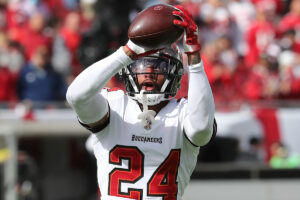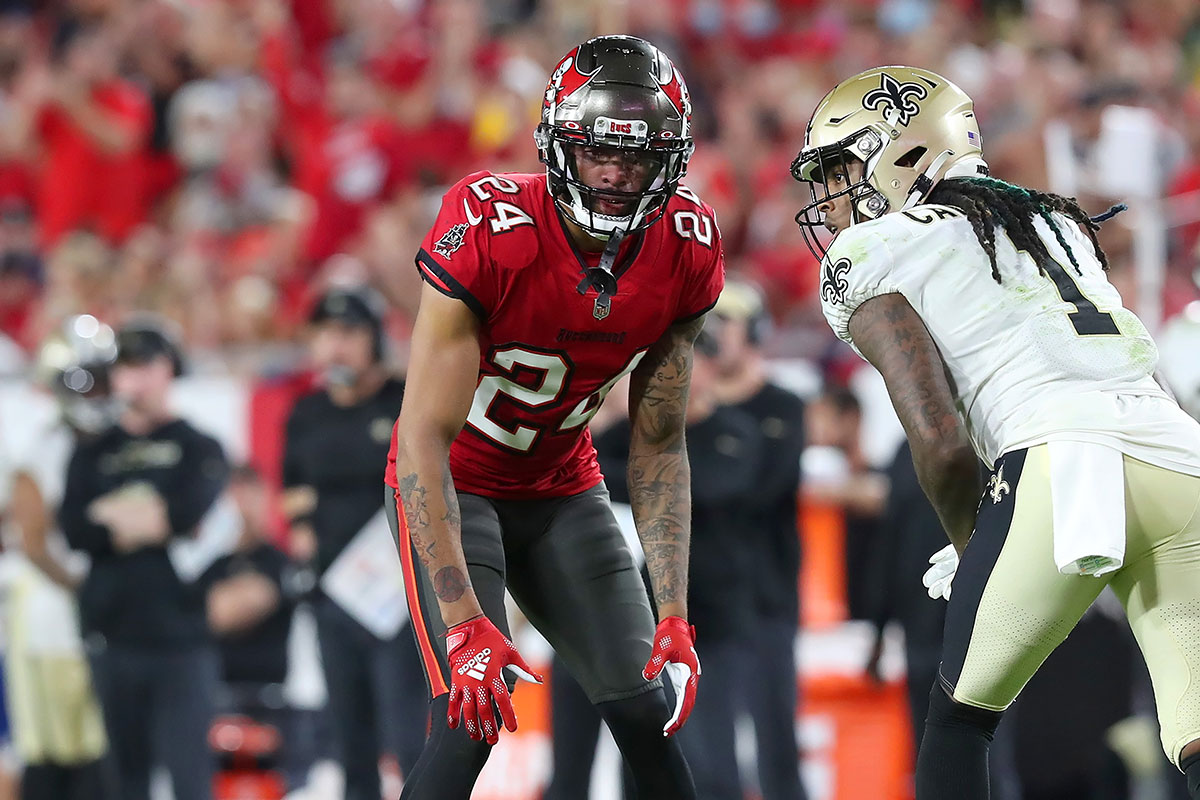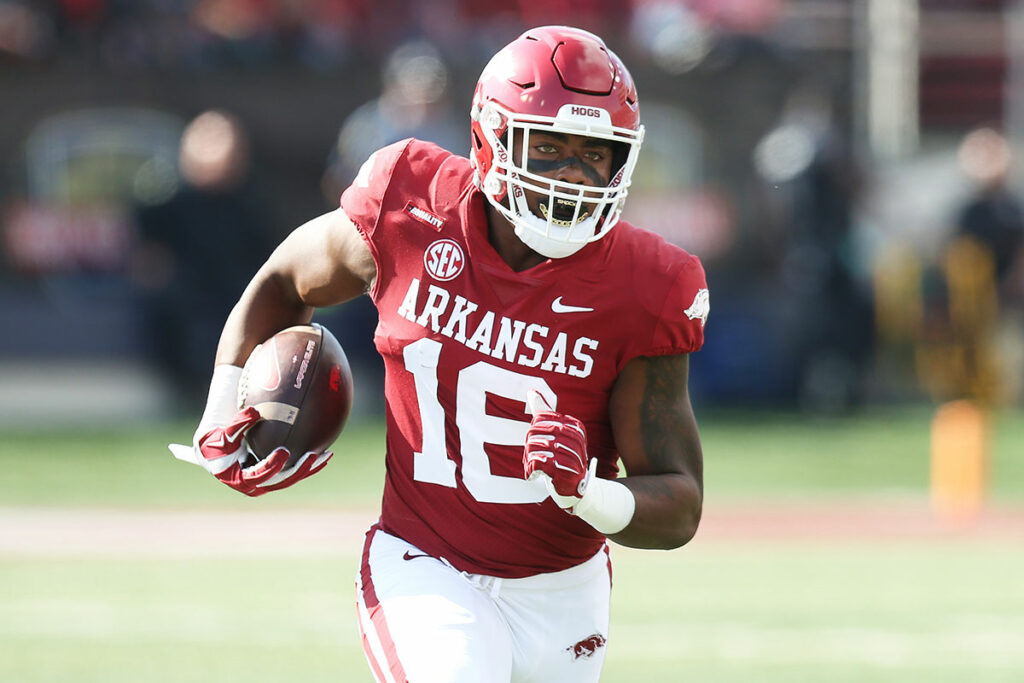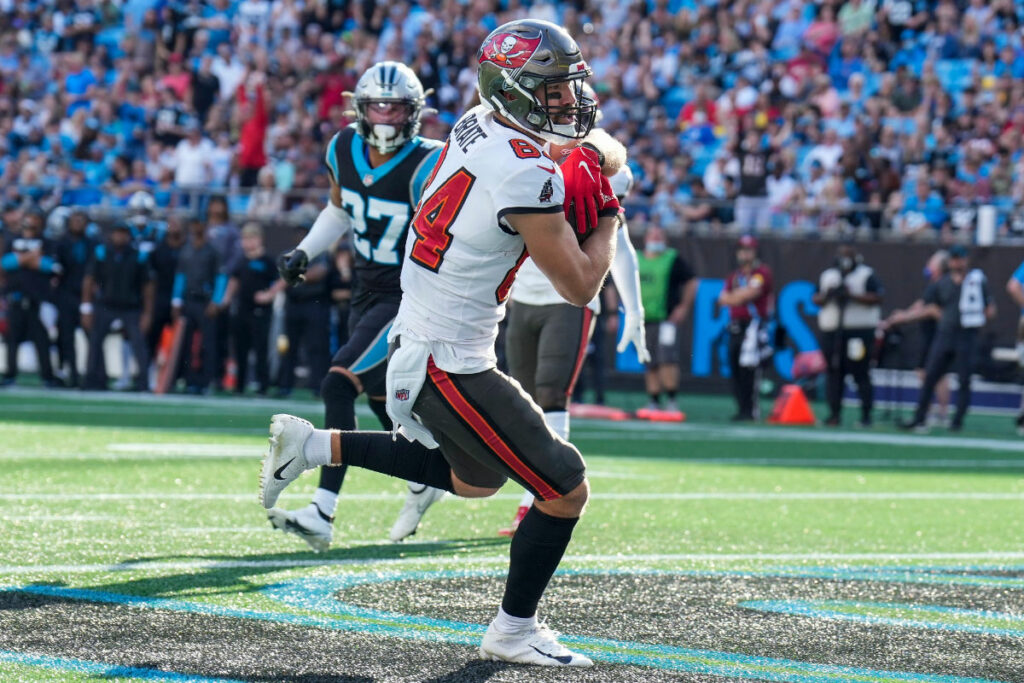On Tuesday, February 22, the window opened for NFL teams to franchise tag potential free agents. Most teams won’t use the tag until closer to March 8, the deadline to apply the franchise designation. Last year, the Bucs franchise tag decision was not a difficult one. Tampa Bay, confident they could get longer deals done with Shaq Barrett and Lavonte David, tagged Chris Godwin. The two sides tried to hammer out a long term deal and got close, but ultimately Godwin played on the tag.
This year, Godwin is once again the Bucs most important free agent. But Tampa Bay has less options in dealing with the star wideout than it did in 2021. The Bucs won’t franchise tag Godwin this year, as the cost would be well above his market value. Currently, tagging Godwin for a second straight season would result in a one-year cap hit of $19.18 million.

Bucs WR Chris Godwin – Photo by: Cliff Welch/PR
Pro Football Focus’ projects Godwin’s next contract to come in at four years, $70 million. That’s an average of $17.5 million per year, well under the cost of the tag. And Godwin may not even be that expensive. The market is falling some at wide receiver, and Godwin is just a few months into recovery from a torn ACL. Although just 25 years old, he’s battled nagging injuries before finally suffering a major one.
I’m not worried about Godwin’s health long term – the hit he suffered against New Orleans is a blow that happens once or twice a season. But I’m also not putting $70 million on the line. In a market where wide receivers are getting a little less than expected in recent years, Godwin could come in closer to the $16.5-$16.75 million per year range, per Pewter Report’s Josh Queipo.
So what will the Bucs do with their franchise tag? It won’t go to center Ryan Jensen or guard Alex Cappa. There is just one flat tag for offensive linemen, which pays out at $16.7 million this year. There’s no chance Jensen or Cappa will command anything close to that on the open market. It won’t go to safety Jordan Whitehead either. It will be cheaper per year for the Bucs to re-sign him than to use the $13.5 million franchise tag for safeties.
If the Bucs are going to use the franchise tag, the only real candidate is cornerback Carlton Davis. The four-year veteran has been the Bucs top cover corner for the past 2-3 years. Over the past two seasons, Davis has established himself as one of the league’s better corners. Unfortunately the second rounder missed seven games with a quad injury. He also dropped several easy interceptions, which might have raised his market value.

Bucs CB Carlton Davis III – Photo by: Cliff Welch/PR
Right now, tagging Davis would cost the Bucs $17.3 million against the cap. That’s a significant price which would make Davis the fourth-highest paid cornerback in the NFL on a per year basis. But it’s still closer to market value for a premier young player than tagging anyone else would be. Two contracts experts I spoke with both predicted Davis would command a 4-year, $70 million contract in free agency. Essentially a contract that mirrors Godwin’s projected value.
Also, the Bucs would have ample opportunity to negotiate a new contract with Davis before the deadline. NFL clubs can work toward a long term deal until July 15. So they could sign him long term for essentially the same cost per year, but structure the contract to alleviate pressure on the cap this season, when things are tighter.
Signing Davis to a long-term deal seems like a no-brainer for the Bucs. They’ve put no money into their young secondary yet, and Davis is clearly their top cornerback. He’s improved every year and competes like crazy on every snap. In today’s NFL, it is critical to keep premier cornerbacks around. If the Bucs can’t work out a long term deal before March 8, Davis should receive the tag. And the two sides should come to an agreement on a more substantial contract well before training camp rolls around.
Jon Ledyard is PewterReport.com's newest Bucs beat writer and has experience covering the Pittsburgh Steelers as a beat writer and analyzing the NFL Draft for several draft websites, including The Draft Network. Follow Ledyard on Twitter at @LedyardNFLDraft




